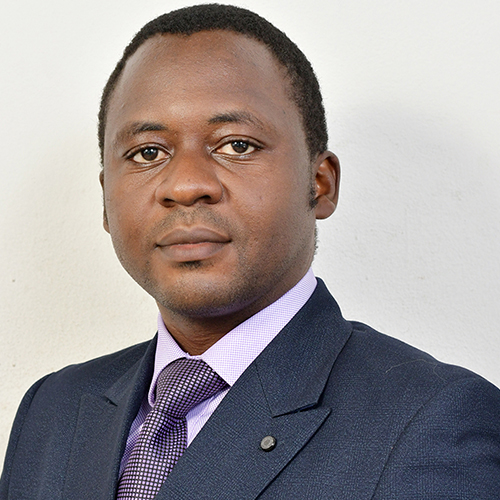
Dacquin Muhandwa
Country (Nationality)
Democratic Republic of the Congo
Grantee Title
Project: Investigating factors associated with Ebola virus disease outcome in patients receiving monoclonal antibody therapies
Grantee Description
Research area:
Viruses and infectious diseases
Host Organisation & country:
Institut National de Recherche Biomedicale, D.R.Congo
Summary
The Ebola virus’ high transmissibility and the limited knowledge about its aetiology makes it one of the most dangerous viruses causing a dramatic haemorrhagic disease with a high mortality rate in some African countries. Dr. Kasumba’s research will investigate how the Ebola virus overcomes our immune system and counter-acts recently approved treatments.
Grantee Description
Dr. Dacquin Kasumba is an ARISE fellow and a Lead Immunologist at the Institut National de Recherche Biomedical (INRB) in D.R.Congo. He obtained his Ph.D. in Molecular and Cellular Immunology from Kyoto University (Japan) in 2017. His doctoral work focused on clarifying and exploiting immune responses against respiratory viruses such as Influenza H5N1.
Dr Kasumba's long-term objectives are to establish, in DRC, a highly specialized and equipped molecular and cellular immunology niche that will allow profound investigations of zoonosis or pathogens with zoonotic potentials to better understand, treat and prevent infectious diseases through adapted diagnostics tools, therapies and vaccines. Doing this also includes training young African scientists. As a result, it is expected that such an endeavour will help shape national and continental policies on infectious diseases and health.
Project: Investigating factors associated with Ebola virus disease outcome in patients receiving monoclonal antibody therapies
Since 1976, Ebola virus diseases (EVD) have sporadically emerged in Africa. Over four decades, there have been more than twenty-five outbreaks with the majority being in central Africa, particularly in D.R.Congo. Recent years have seen an increased frequency of emergence of this disease of zoonotic origin. EVD is highly contagious and deadly, hence its heavy toll on local communities and economies.
With its high death rate, EVD was considered a fatality until recent discoveries of neutralizing monoclonal antibody therapies. These EBOV-specific therapies have a strong capacity to neutralize the virus and cure the disease in a significant number of diseased patients or subjects, but not all.
We hypothesized that virus intrinsic factors can “reshuffle” the immune response of infected hosts, thereby remodelling immune protection in some patients, and leading to treatment failure in some patients. We will evaluate viral/host (patient) factors determining the outcome of the disease (succumbed/survived). As a result, this project will drive the improvement of recently proposed and approved EVD treatments (monoclonal antibodies) to allow the saving of more, if not all patients. This project will also improve our understanding of EVD thereby enhancing our ability to elucidate the zoonotic causes of this microbe.
